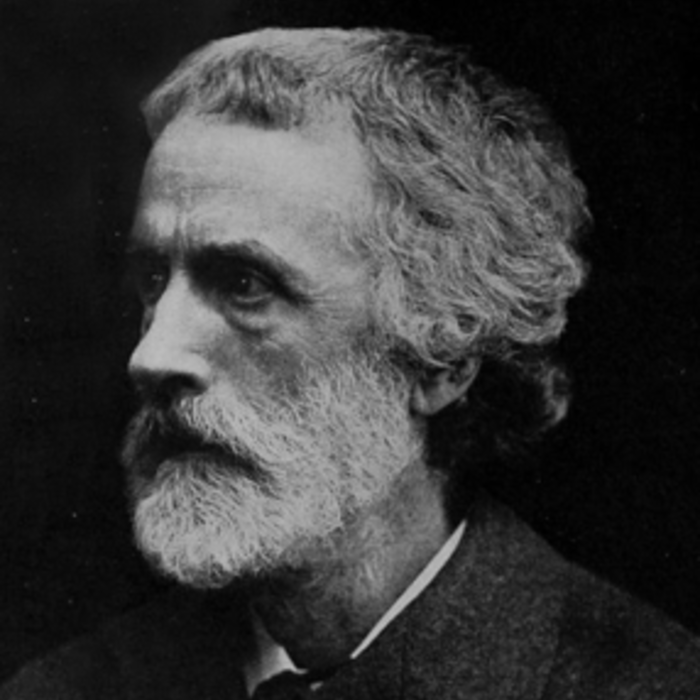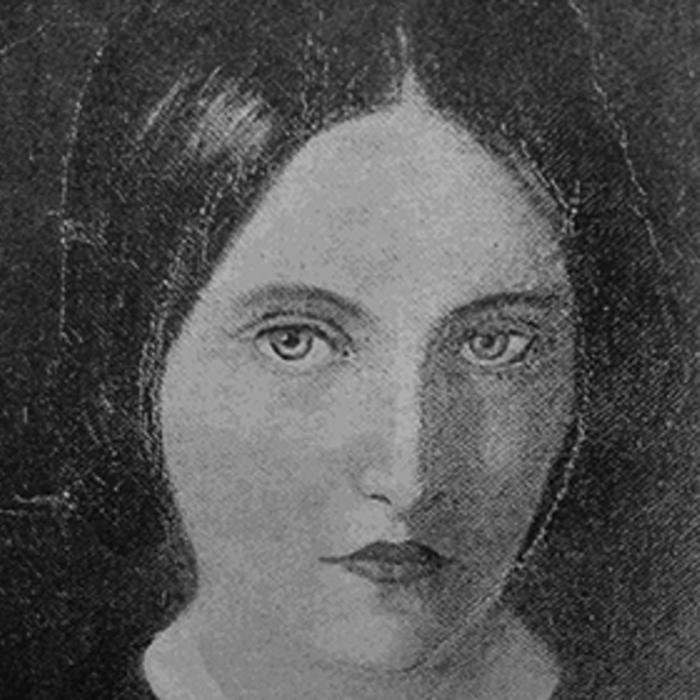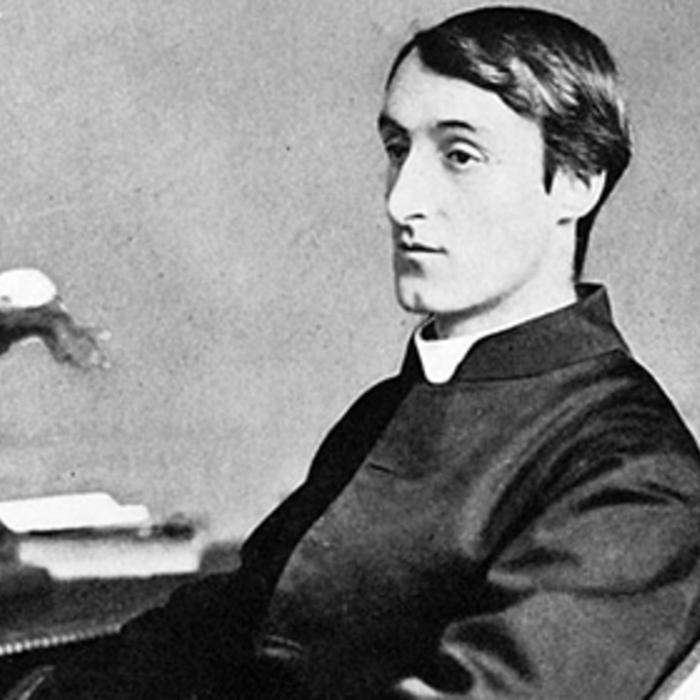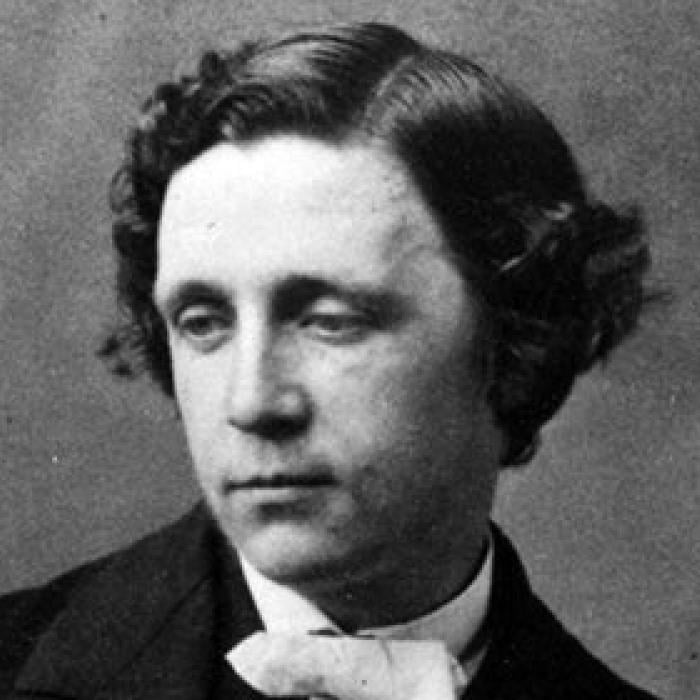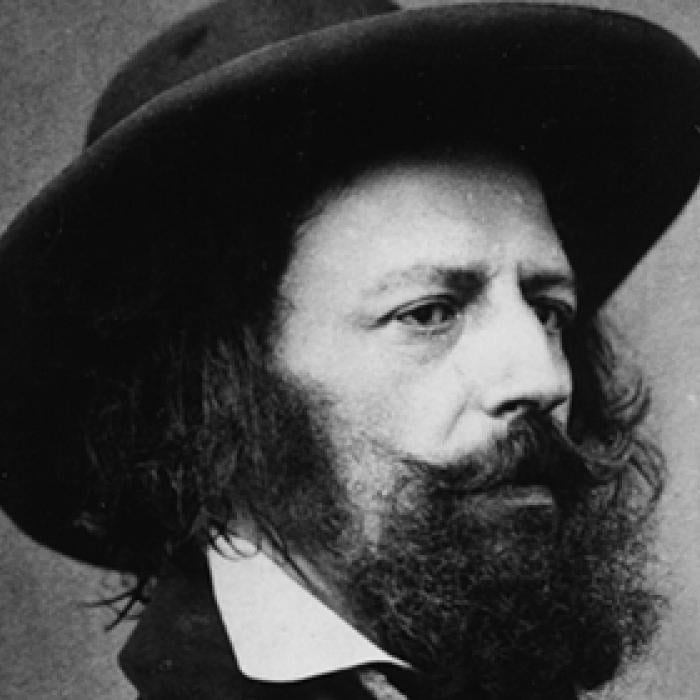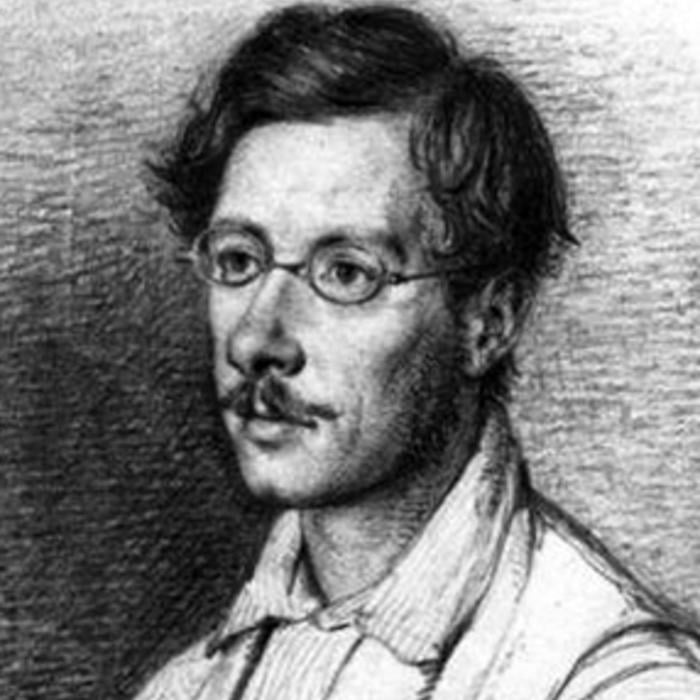Algernon Charles Swinburne
Algernon Charles Swinburne, English poet and critic, was born on April 5, 1837, in London. His family, aristocratic on both sides, divided their time between family estates in Northumberland and the Isle of Wight. The dramatic landscapes of these two homes would later influence his poetry.
He attended Eton beginning in 1849, and in 1856 he matriculated at Oxford University as a student in Balliol College. There, he became friends with the Pre-Raphaelite painters and joined an undergraduate group of intellectuals who called themselves the “Old Mortality.” While he began writing both poetry and criticism at Oxford, he left without a degree in 1859 and moved to London.
The literary social life that Swinburne began at Oxford extended to his life in London, where he frequented parties and associated with many cultural figures. He published his first book, a collection of two dramas titled The Queen-Mother and Rosamond (B. M. Pickering, 1860). His two subsequent dramas, Atlanta in Calydon (Edward Moxon, 1865) and Chastelard (E. P. Dutton, 1866), were received more positively in his literary spheres, but it was not until 1866 that his career catapulted with the publication of his first poetry collection.
Poems and Ballads (Edward Moxon, 1866) had a notable impact on Victorian poetry with its groundbreaking portrayal of sexuality and taboo. Swinburne is known for the sensation that this book produced in the literary community, but also for the range of his subsequent poetry collections. He published several more books of poetry, including the political Songs Before Sunrise (F. S. Ellis, 1871) and the French-influenced Poems and Ballads, Second Series (Chatto and Windus, 1878).
He was also the author of an influential body of literary criticism, of which T. S. Eliot wrote, “whatever our opinion of Swinburne’s verse, the notes upon poets by a poet of Swinburne’s dimensions must be read with attention and respect.”
After his health deteriorated in the 1870s, he moved to Putney to live with his close friend Theodore Watts-Dunton. While he continued to write, it is argued that the quality of his work declined in this later period. He died in London on April 10, 1909.

